Election in Spain Only Deepens Political Uncertainty
No clear mandate in Sunday vote raises the prospect of a fifth vote in as many years. Far-right party's surge in support is an added worry.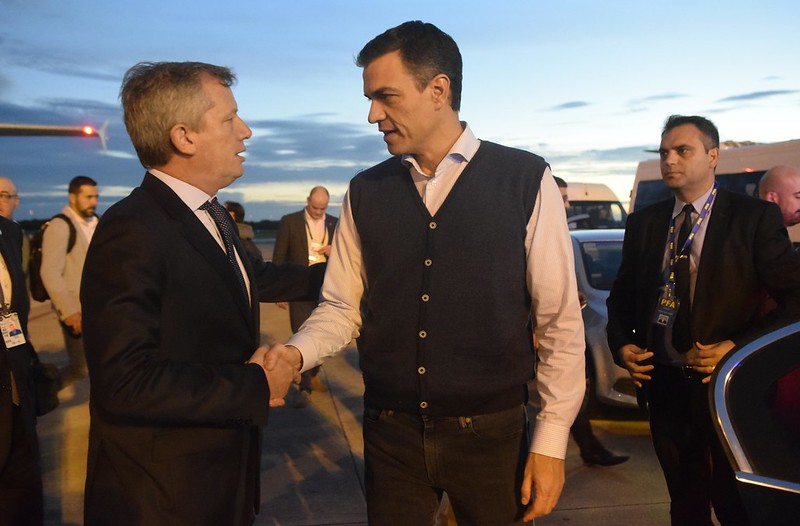 Spain's Prime Minister Pedro Sánchez arrives at the G20 summit in Buenos Aires, Argentina, last November. In Sunday's general election, his left-of-center Socialists captured the most seats but fell far short of a majority. (G20 Argentina / Flickr)
Spain's Prime Minister Pedro Sánchez arrives at the G20 summit in Buenos Aires, Argentina, last November. In Sunday's general election, his left-of-center Socialists captured the most seats but fell far short of a majority. (G20 Argentina / Flickr)
MADRID — A general election called to end political deadlock in Spain has only deepened uncertainty about the future of the European Union’s fifth-largest economy and raised the possibility of yet another ballot — the fifth in five years — next year.
No party achieved a clear mandate to govern in Sunday’s vote, which was the second election in seven months and was intended to clear away the stalemate. Further weeks or months of political jockeying now lie ahead.
Incumbent Prime Minister Pedro Sánchez’s left-of-center Socialists captured the most seats, with 120. But that is far short of a majority in the 350-seat chamber, meaning the Socialists will have to negotiate deals with other parties if they are to govern.
The outcome also threw up a new roadblock: Support surged for far-right party Vox, which was launched just six years ago.
It collected 52 seats, more than double its showing in the last election in April, making it the third largest party in parliament behind the Socialists and the conservative Popular Party, which recovered to collect 88 seats.
Across Europe, far-right parties have made gains in recent years, setting off alarm bells about the bloc’s political direction.
Some analysts put down Vox’s rise to nationalist sentiment stirred up as a result of mass protests by separatists in the wealthy northeastern region of Catalonia. The protests have included recent violent clashes with police that left more than 500 people injured.
The push for Catalan independence, which the national government won’t allow, is Spain’s most serious political issue in decades and shows no signs of abating. Three Catalan separatist parties won a combined 23 seats, one more than in April.
José Ignacio Torreblanca, an analyst and head of the Madrid office of the European Council on Foreign Relations, said the Catalan separatists helped give rise to Vox.
“The one thing that the Catalans have achieved is to get a radical right equally as radical as they are on the other end, a kind of a mirror thing and with that make everyone’s life more miserable,” he said.
On Monday, Catalan radicals resumed their protests by blocking a major highway crossing the border between France and Spain and promising to keep it closed for three days. French police pushed them back toward Spain and scuffles broke out.
Vox leader Santiago Abascal said Monday that his party won’t support a Socialist government and issued a warning: “We demand that order be restored in Catalonia.”
Contemplating the election outcome and another fragmented parliament, many people on the streets of Madrid were scratching their heads Monday over what would happen next.
“I think we are worse than before: We are more divided,” said Antonio Prados, a 44-year-old police officer. “I don’t know, there’s a possibility to form a government, but I don’t know how they will come up with the numbers.”
Andrew Dowling, an expert on contemporary Spanish politics at Cardiff University in Wales, said Sánchez’s plan to reconfigure parliament to his benefit had backfired, leaving Spain once again at the mercy of an unpredictable political landscape.
“The Spanish Socialist party made a major miscalculation in calling new elections,” Dowling said.
The next step will be for parliamentarians to select a house speaker in the coming weeks and then for talks between King Felipe VI and party leaders to begin so that one of them, most likely Sánchez, will be called on to try to form a government.
Sanchez was meeting with his party leadership later Monday. Party secretary José Ábalos said Sánchez will sound out other party leaders over the coming days and seek to form a government as soon as possible.
Ábalos said the Socialists would not build any coalitions with parties on the right, indicating it would seek support instead from other leftist groups and regional parties.
But Sánchez’s closest political allies, the left-wing United We Can party, fell from 42 to 35 seats. Sunday’s ballot also went badly for the right-of-center Citizens party, which captured just 10 seats in parliament, down from 57 seats in April. Party leader Albert Rivera quit Monday.
In all, 12 parties gained parliamentary representation.
Capital Economics, a London-based research company, said it expected no short-term economic difficulties after Sunday’s vote because Spain’s economy has remained healthy despite the past four years of political gridlock.
But it warned Monday that deep, long-term economic reforms are needed in Spain’s labor markets and pension systems to keep Spain competitive.
___
Hatton reported from Lisbon, Portugal. Associated Press reporters Helena Alves in Madrid and Felipe Dana on the France-Spain border contributed to this report.
Your support matters…Independent journalism is under threat and overshadowed by heavily funded mainstream media.
You can help level the playing field. Become a member.
Your tax-deductible contribution keeps us digging beneath the headlines to give you thought-provoking, investigative reporting and analysis that unearths what's really happening- without compromise.
Give today to support our courageous, independent journalists.
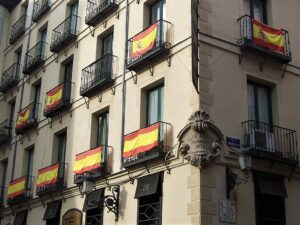
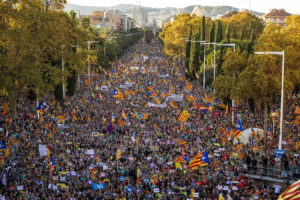
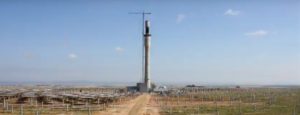
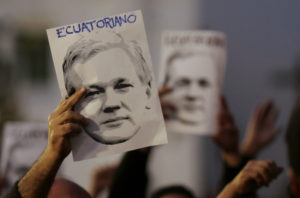


You need to be a supporter to comment.
There are currently no responses to this article.
Be the first to respond.